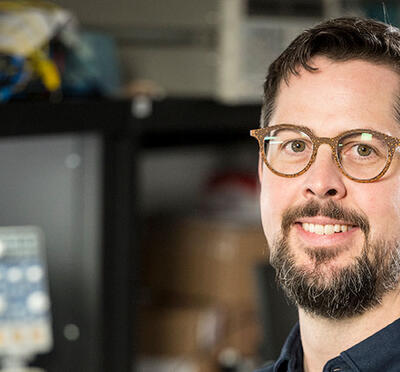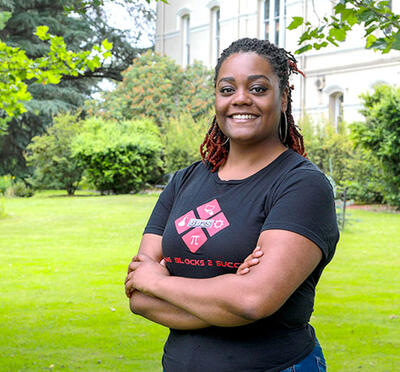Beloved teacher left legacy of inspiration
Roger Traylor, senior instructor of electrical and computer engineering, lived a life of meaning and purpose. He died Oct. 8, leaving a legacy of inspiration for more than 10,000 students and many colleagues through his teaching, mentorship, and friendship.
Traylor came to teach at Oregon State University with practical experience in industry. His first job out of college was with GTE’s Strategic Communications Division in Massachusetts. There he developed an interest in parallel computing, which spurred him to come to Oregon State and earn a master’s degree in 1985.
After graduation, he succeeded in his dream of working at Intel, where he was part of small, cutting-edge team working on scientific supercomputers. It was a job he loved for the challenge of seemingly impossible projects. While at Intel, Traylor earned four patents and was credited with designing a chip on his own that typically would take a team of engineers.
After a decade of success at Intel, Traylor moved to academia for a better work-life balance, to spend more time with his young family. What he found was a passion for teaching.
“I’ve learned that I can be creative in the context of teaching,” he said in an interview for a staff profile. “I love seeing the lightbulbs go on when they get stuff, especially when they learn to build something with their hands and it’s not just theory on a board.”
Hands-on learning was at the core of his classes, and he went to extraordinary effort to make sure students had meaningful experiences.
“Roger believed learning required all your senses — seeing, touching, smelling, hearing, and sometimes even tasting,” said Terri Fiez, former head of the School of Electrical Engineering and Computer Science. “During COVID he ensured students still had hands-on practice by mailing soldering irons and electronic components to those learning remotely.”
Traylor’s students noticed his effort. Over his career, they voted to grant him 19 awards for excellence in teaching.
“Roger was very skilled at distilling and delivering the technical material in a way that made sense to students, and he knew how to reach students of all different backgrounds,” said Un-Ku Moon, professor of electrical and computer engineering.
Alexandra Sipahutar, B.S. electrical and computer engineering ’24, says that although learning technical skills from Traylor was important, his biggest influence was helping her gain the confidence to pursue a technical career.
“Roger would always tell me, ‘Don’t discount yourself. You are better than you think,’” said Sipahutar, who is now an application engineer for Cadence Design Systems. “I wouldn’t be the engineer I am today if it was not for him.”
Traylor battled cancer twice in his life which taught him lessons that he shared with others. Farshad Farahbakhshian, B.S. electrical and computer engineering ’12, M.S. ’14, says he learned more than engineering from Traylor.
“He told me something that changed my perspective forever,” he said. “While he had always known, intellectually, that life was finite, his diagnosis made him feel this truth in his heart, 18 inches below his brain. This awareness, he said, helped him discover what truly mattered in life. Today, I carry Roger’s wisdom in my own heart, grateful for the profound lessons he shared.”



